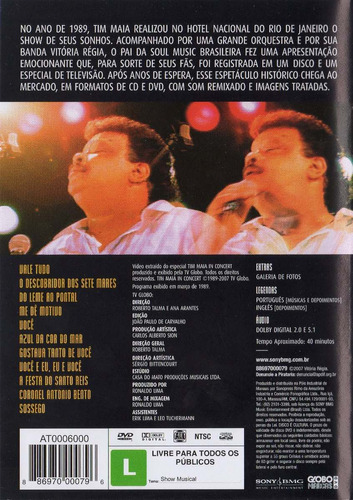


They liked to listen to the earliest styles of rock and roll, with both Maia and Ben being nicknamed "Babulina" after their enthusiastic pronunciation of Ronnie Self's song "Bop-A-Lena". Named after the street where they used to hang out, the gang also included Jorge Ben and Erasmo Carlos, among others. He also gave lessons to his friends Erasmo Esteves and Roberto Carlos, fellow members of the so-called Matoso Gang. He then took guitar classes and was soon teaching other children in Tijuca. At fourteen, as a drummer, he formed the group Os Tijucanos do Ritmo, which lasted one year. Then known as "Tião Maia", he wrote his earliest songs at age eight. He began writing melodies while still a child, the second youngest of nineteen children. Maia was born in the Tijuca neighbourhood, in the southern suburbs of Rio de Janeiro. A theatrical retrospective of his career, the popular musical Vale Tudo, was first staged in Rio de Janeiro in 2012.

After his early death in 1998, his recorded oeuvre has shown enduring popularity. Tim Maia recorded numerous albums and toured extensively in a long career. Tim Maia is internationally recognised as one of the biggest icons of the Brazilian music. He introduced the soul style on the Brazilian musical scene. Maia contributed to Brazilian music within a wide variety of musical genres, including soul, funk, bossa nova, disco, romantic ballads, pop, rock, jazz, baião and MPB. Tim Maia (Portuguese pronunciation: Septem– March 15, 1998), born Sebastião Rodrigues Maia in Rio de Janeiro city, was a Brazilian musician, songwriter and businessman known for his iconoclastic, ironic, outspoken, and humorous musical style.


 0 kommentar(er)
0 kommentar(er)
